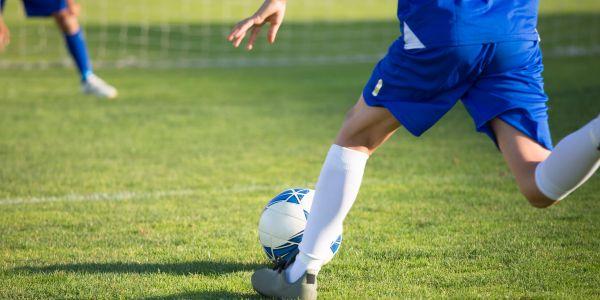
Are Losses Devastating or Motivating?
Summary: Are Losses Devastating or Motivating for Your Athletes? Young athletes can use defeats to fuel motivation by learning from setbacks instead of letting losses undermine their confidence. After a disappointing performance, kids should process the loss, reset goals, identify skills to improve, and adjust their training and mental preparation.
This is a question sports kids should ask themselves.
Some athletes allow one defeat, especially if the competition was significantly important to them, to take the wind out of their sails.
They believe the possibility of another defeat is not worth the long hours of training and hard work. That one loss is all they need to conclude they are not good enough
Other athletes use defeats to motivate themselves to kick training up a notch. That doesn’t mean they are not upset by the loss; instead, they reset after it.
They reset their goals, review their training plan, work on small aspects of their game they may have previously neglected, dedicate themselves to mental training, and hold themselves accountable every step of the way.
These types of athletes don’t feel like they’re at a disadvantage at the next competition. They use the earlier disappointment to give themselves an edge. Since they are better prepared, they are more confident about competing.
In the women’s 100-meter butterfly at the 2024 Paris Olympics, USA swimmer Torri Huske chased down teammate Gretchen Walsh to claim Team USA’s first individual gold of the Games by 0.04 seconds.
However, in the same event at the 2021 Tokyo Olympic Games, Huske finished fourth and was .01 out of medal contention.
“I’m not gonna lie,” Huske said. “That was devastating. But I think that it really fueled me.”
While such a narrow defeat would crush many other athletes, Huske used the loss to fuel her training efforts for three more years.
How to Know if Losses Devastating or Motivating for your Athletes
Not only did that fourth-place finish motivate Huske, but it also gave her a mental edge.
The result of a significant competition does impact athletes in some way. Young athletes can choose whether the impact will be positive or negative.
Kids get to choose whether the loss devastates or motivates them. They get to choose whether or not they will bounce back better or become deflated by the experience.
The first step in using losses to fuel motivation is to process the loss. Sports kids should review the competition and determine what they could have done differently or can do differently in the future.
Next, they should identify the skills, mental or technical, they need to develop to hone mechanics or improve their performance.
Afterward, they should figure out how to prepare better. Does their training regime need adjusting? Do they need a better-thought-out mental training plan?
Lastly, athletes should decide how they will make themselves accountable for their actions, efforts and attitude.
Their response to the loss will shape their athletic future, and it all starts with a choice.
A loss isn’t an end or failure. Athletes can use the loss as a new beginning, a way to start over better and smarter.
To reset, young athletes should ask themselves, “How can I use this experience to motivate myself?”
Then, they should reset their goals and design an action plan that keeps their focus on their objective and not a previous loss.
Are Losses Devastating or Motivating?
1. Process the Loss to Learn and Grow
Young athletes should review competitions to identify what went wrong and what can be improved. Learning from mistakes helps them use defeats to fuel motivation and prepare for future success.
2. Reset Goals After a Defeat
Athletes should set new, realistic goals following a loss. This approach allows kids to focus on progress rather than dwelling on past failures, helping them bounce back stronger from setbacks.
3. Identify Skills to Develop
After a defeat, sports kids should pinpoint technical and mental skills that need improvement. Focusing on specific areas ensures they turn losses into actionable growth opportunities.
4. Adjust Training and Mental Preparation
Athletes should evaluate their training routines and mental strategies. Tweaking workouts, practice intensity, or mental exercises helps kids use defeats to enhance competitive performance.
5. Take Accountability for Actions and Effort
Young athletes should hold themselves responsible for their preparation, attitude, and effort. Accountability ensures they respond positively to losses and maintain confidence for the next competition.
Related Kids Sports Psychology Articles:
- Helping Athletes Respond Better to Criticism
- Pregame Tips for Sports Parents Video
- Communication Tips for Sports Parents Before Games
*Subscribe to The Sports Psychology Podcast on iTunes
*Subscribe to The Sports Psychology Podcast on Spotify
THE FOCUSED SPORTS KID (DIGITAL DOWNLOAD)

“The Focused Sports Kid” helps sports kids who get easily distracted and can’t maintain their focus in competition. In this program, you and your athlete learn concentration-boosting strategies to help young athletes develop laser focus during competition. “The Focused Sports Kid” is two programs in one. You get a manual and Audio program for parents/coaches, and a PDF workbook and audio programs for young athletes.
“We just completed the first ten tips, it has helped tremendously for (our daughter) and us. We’ve learned to keep our behavior and comments in check. She’s letting mistakes happen and not worrying about them, she’s now just moves on to the next play with the same attitude as before the mistakes. She’s playing more aggressively all game. Her coach even mentioned that whatever we are doing, keep doing because it’s working.”
~Scott, Sports Dad
FAQ: Are Losses Devastating or Motivating?
Q: Why is it important for young athletes to learn from defeats?
A: Learning from defeats helps athletes use losses to fuel motivation. Instead of feeling defeated, kids can analyze what went wrong, adjust their training, and prepare to perform better in future competitions.
Q: How should athletes reset after a significant loss?
A: Athletes should reset by establishing new goals, designing an updated training plan, and focusing on specific skills to improve. Resetting helps kids bounce back stronger and maintain confidence.
Q: What role does accountability play after a loss?
A: Taking ownership of effort, attitude, and preparation allows athletes to respond positively to setbacks. Accountability ensures that defeats are used as opportunities to enhance performance and motivation.
Q: How can young athletes improve their skills after a defeat?
A: By reviewing technical and mental areas that need growth, athletes can target weaknesses and build strengths. This method helps them turn losses into actionable development steps.
Q: Can defeats be a source of long-term motivation?
A: Yes. By reflecting on losses and committing to improvements, athletes can use defeats to fuel motivation for future competitions, giving them a mental and strategic edge.
Are Losses Devastating or Motivating?
Kids Sports Psychology expert Patrick Cohn, Ph.D. has helped athletes for over 35 years to enhance their performance. Dr. Cohn earned a master’s degree in sports psychology from CSUF and a Ph.D. from the University of Virginia, specializing in Applied Sports Psychology. Today, he is the president and founder of Peak Performance Sports, LLC in Orlando, Florida.
